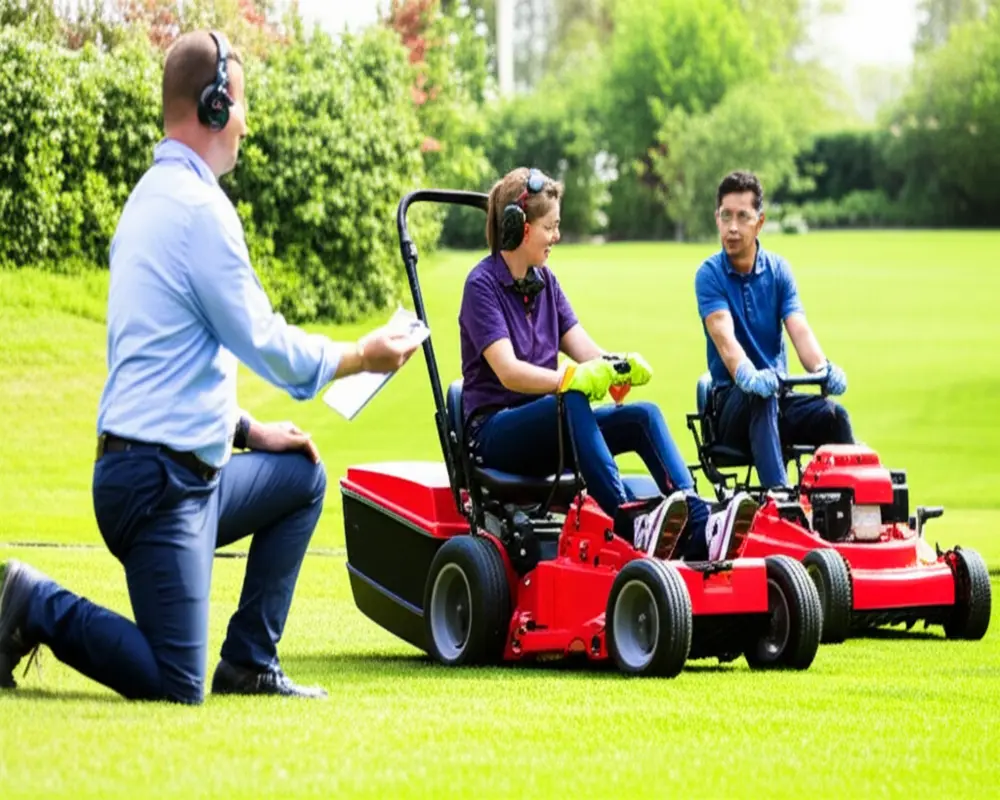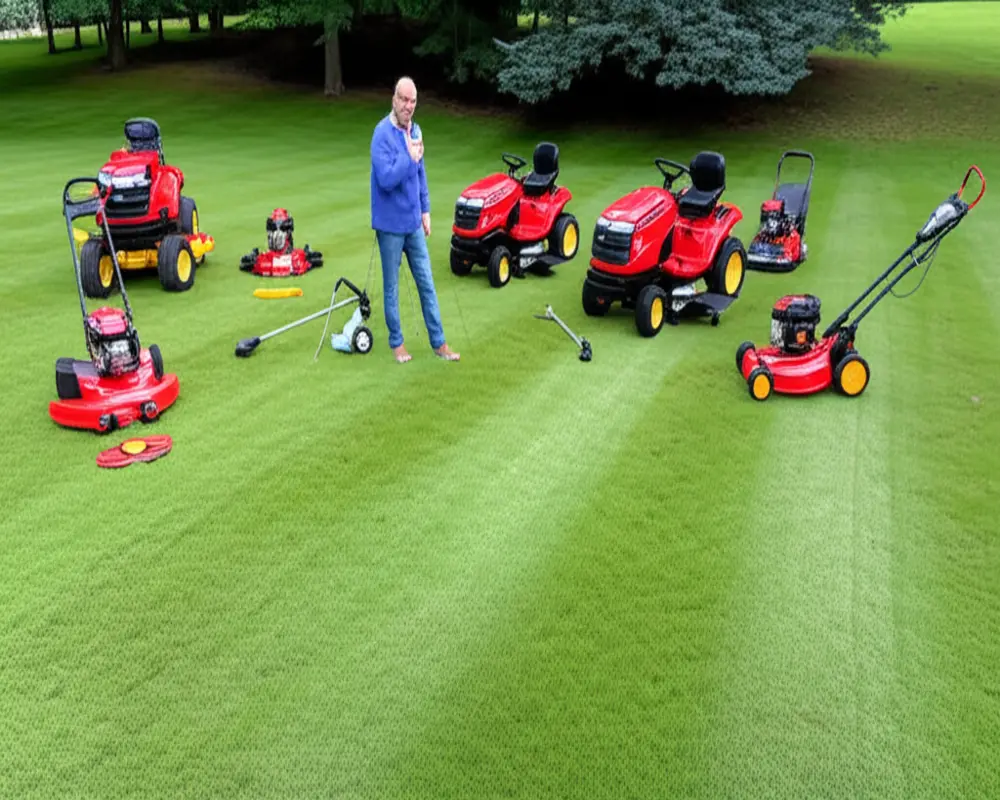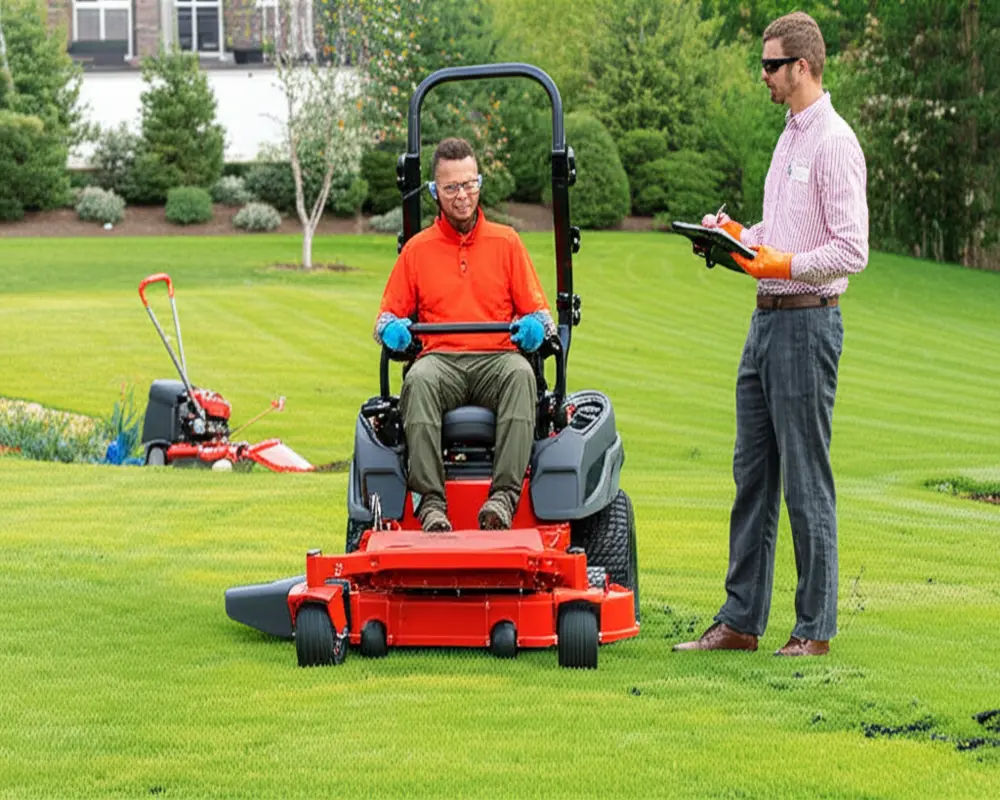Mastering the Professional Lawn Mower Interview in 2025
Preparing for a professional lawn mower interview in 2025 requires more than just knowledge of lawn care. It demands a comprehensive understanding of equipment operation, safety protocols, and the ability to present oneself as a reliable and skilled candidate. Whether you are an applicant looking to ace your interview or an employer aiming to recruit top talent, this guide offers expert insights tailored to the evolving landscape of lawn care employment.
Thank you for reading this post, don't forget to subscribe!I. Introduction: Cultivating Success in Lawn Care Interviews
A. The Importance of a Professional Interview
The interview is a pivotal moment that bridges your skills and an employer’s expectations in the lawn care industry. It is the platform where technical expertise, safety awareness, and work ethic converge to demonstrate your readiness for the role. For employers, the interview serves as the critical step to identify candidates who not only operate lawn care machinery proficiently but also uphold safety and compliance standards essential for a productive work environment.
B. Who This Guide Is For
This guide is designed for both sides of the hiring table: professional lawn mower candidates seeking to shine in their interviews and employers or hiring managers looking to evaluate and select the best lawn care professionals efficiently.
C. What You’ll Learn
Readers will gain strategies for pre-interview preparation, insight into typical interview questions, safety and certification expectations, and how to discuss salary and benefits confidently. Employers will find advice on structuring interviews, defining candidate profiles, assessing practical skills, and recognizing key indicators of potential success or concern.
II. For the Professional Lawn Mower Candidate: Acing Your Interview
A. Pre-Interview Preparation
1. Researching the Company
Understanding the company’s mission, services, and clientele is crucial. A lawn care company may specialize in residential, commercial, or specialized landscaping services that influence the skills and equipment knowledge required. Visiting the company website, reading recent news, or checking their social media presence can provide valuable context.
2. Updating Resume & Cover Letter
Highlight relevant experience, such as specific equipment you’ve operated, certifications like lawn mower certification, and any safety training completed. Tailoring your cover letter to emphasize your commitment to safe and efficient lawn care sets you apart.
3. Understanding Role Demands
Roles in lawn care vary from routine mowing to operating complex equipment or managing landscape maintenance projects. Knowing these demands prepares you to discuss your capability and willingness to meet them.
4. What to Bring
Bring multiple copies of your resume, certifications, references, and a list of questions for the interviewer. If applicable, include a portfolio of past work or a log of equipment operation hours.
5. Professional Presentation
Dress appropriately for the role. While lawn care work is hands-on, appearing neat and ready to work reflects professionalism. Arriving on time and with a confident demeanor reinforces your reliability.

B. Common Interview Questions & Expert Answers
1. Technical & Equipment Knowledge Questions
Expect questions about your experience with various lawn care tools and machinery. You might be asked:
- What types of lawn mowers have you operated? Discuss walk-behind, riding mowers, or zero-turn mowers, emphasizing your familiarity.
- How do you perform routine maintenance on equipment? Mention checking oil, sharpening blades, and cleaning air filters.
- Have you ever troubleshooted a lawn mower that wouldn’t start? Reference knowledge on common issues such as spark plug problems or fuel supply interruptions. For more detailed troubleshooting tips, see our comprehensive guide on lawn mower won’t start.

2. Safety & Compliance Questions
Employers prioritize safety. Be prepared to discuss:
- Your understanding of OSHA safety protocols.
- How you handle fuel safely and manage sharp blades.
- Steps you take to protect yourself and others on the job site.
3. Behavioral & Situational Questions
These assess your problem-solving and teamwork skills. Examples include:
- Describe a time you handled equipment failure during a job.
- How do you respond to unexpected weather changes impacting your schedule?
- Have you worked in a team setting, and how do you contribute to group success?
4. General & Work Ethic Questions
Questions here focus on your reliability, punctuality, and attitude towards work:
- What motivates you to deliver quality lawn care?
- How do you manage your time on larger projects?
- Are you willing to work flexible hours during peak seasons?
C. Questions to Ask Your Interviewer
Asking insightful questions shows your interest and preparation. Consider:
- What does a typical workday look like for this position?
- What safety training programs does the company provide?
- Are there opportunities for advancement or additional certifications?
- How does the company maintain its equipment and ensure compliance?
D. Common Mistakes to Avoid & How to Shine
Avoid arriving unprepared or unaware of the company’s focus. Don’t underestimate the importance of safety knowledge or downplay your experience. Instead, highlight relevant skills confidently and demonstrate your eagerness to learn and adapt. Be honest about gaps but show your commitment to improvement.
E. Discussing Salary & Benefits
Research industry standards for lawn care positions in your region. Be ready to negotiate based on your experience and certifications. Inquire about benefits such as health insurance, retirement plans, or equipment allowances. Transparency and professionalism during this discussion build mutual respect.
III. For the Employer/Hiring Manager: Recruiting Top Lawn Care Talent
A. Defining Your Ideal Candidate Profile
1. Essential Skills
Look for candidates proficient in operating various lawn care equipment, including walk-behind and riding mowers, trimmers, and aerators. Mechanical aptitude and basic maintenance skills are valuable.
2. Key Qualities
Dependability, a strong work ethic, and a commitment to safety are non-negotiable. Candidates should demonstrate problem-solving abilities and adaptability to seasonal demands.
3. Experience & Certifications
Prior experience working in landscaping or lawn care is beneficial. Certifications related to equipment operation, safety training, or pesticide application enhance a candidate’s profile.
B. Structuring Your Interview Process
1. Initial Screening
Use phone or video interviews to assess communication skills and verify basic qualifications before in-person meetings.
2. Interview Stages
Combine behavioral, technical, and situational questioning in your interviews. Consider practical assessments to observe equipment handling.
3. Reference Checks
Contact previous employers to confirm work history, reliability, and safety records.

C. Key Interview Questions to Ask & What to Listen For
1. Technical Competency Questions
Ask about the candidate’s familiarity with specific equipment and maintenance routines. Listen for detailed, confident responses that show hands-on experience.
2. Safety & Risk Awareness Questions
Evaluate their understanding of safety protocols and willingness to adhere to them. Look for awareness of risks and proactive safety measures.
3. Work Ethic & Reliability Questions
Probe into their punctuality, ability to manage workload, and dedication. Candidates who value consistency and responsibility stand out.
4. Problem-Solving & Adaptability Questions
Situational questions about handling equipment failure or weather disruptions reveal flexibility and critical thinking.
D. Assessing Practical Skills & Experience
1. Scenario-Based Questions
Present real-world problems and ask candidates how they would respond. For example, “How would you handle a mower that suddenly stops working mid-job?”
2. “Walk Me Through It” Questions
Have candidates explain their process for routine tasks, such as preparing a mower for use or performing end-of-day maintenance.
3. On-Site Practical Test
Whenever possible, a hands-on test offers the clearest insight into a candidate’s abilities and safety awareness.
4. Reviewing Portfolio
If candidates have documented past projects or certifications, review these carefully to corroborate their claims.
E. What to Look For: Green Flags & Red Flags
Green Flags: Demonstrated safety knowledge, relevant certifications, clear communication, and eagerness to learn.
Red Flags: Vague answers on equipment operation, disregard for safety, inconsistent work history, or reluctance to discuss past challenges.
F. Making the Final Decision
Balance technical skills with cultural fit and attitude. A candidate who aligns with your company’s values and shows commitment to safety and quality will contribute significantly to your team’s success.
IV. Conclusion: Building a Stronger Lawn Care Team
A. Recap of Key Takeaways
Mastering the professional lawn mower interview hinges on thorough preparation, clear communication, and a solid understanding of equipment and safety. Candidates should present themselves as knowledgeable and dependable, while employers must adopt structured, insightful interview methods to identify top talent.
B. Final Encouragement
For candidates, approach your interview as an opportunity to showcase your skills and dedication to excellent lawn care. For employers, investing time in a comprehensive interview process will pay dividends through hiring capable and safe professionals.
C. The Value of a Great Hire/Job
A skilled lawn care professional enhances property aesthetics, ensures operational safety, and contributes to customer satisfaction. The right hire or job match fosters growth, stability, and mutual success in the lawn care industry.
Frequently Asked Questions (FAQs)
- What certifications are most valued for lawn mower operators?
- Certifications related to equipment operation, safety training, and pesticide application are highly regarded. OSHA safety courses and specialized lawn mower certifications add credibility.
- How can candidates best demonstrate safety knowledge during interviews?
- By providing specific examples of safety protocols followed, explaining how they handle hazardous situations, and showing awareness of OSHA regulations.
- What practical skills should employers test during interviews?
- Employers should assess equipment handling, routine maintenance, troubleshooting, and adherence to safety procedures through scenario-based questions or hands-on tests.
- How important is prior experience with specific lawn care equipment?
- Experience is crucial, especially with the types of equipment the company uses. Familiarity with walk-behind mowers, zero-turn mowers, and trimmers improves operational efficiency.
- What are common mistakes candidates make in lawn mower interviews?
- Common pitfalls include lack of preparation, insufficient safety knowledge, vague answers about equipment experience, and poor professional presentation.
For additional insights on equipment troubleshooting, visit our detailed article on why a lawn mower won’t start. To deepen your understanding of hand tools in gardening, explore our comprehensive guide on hand cultivator buying guide.
Stay updated with industry trends and safety standards by following Lawn & Landscape and the U.S. Occupational Safety and Health Administration (OSHA).

